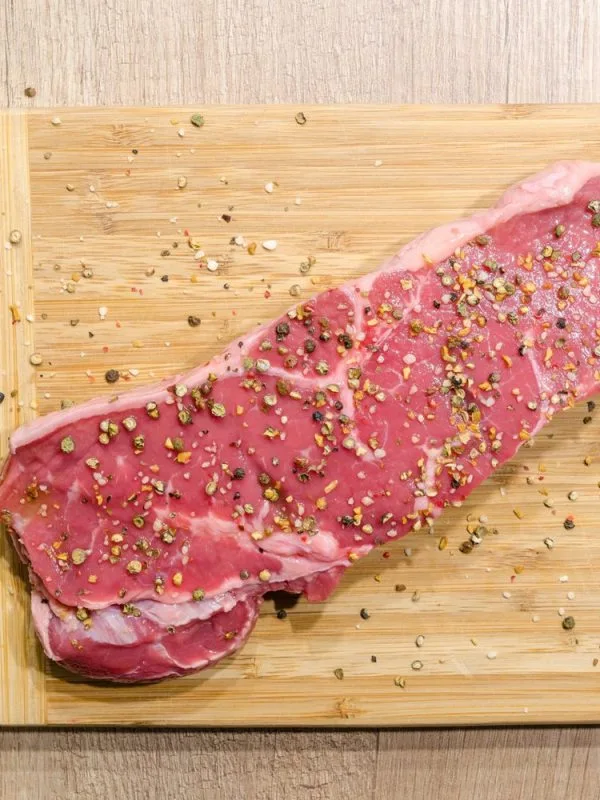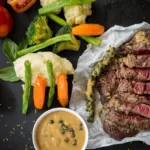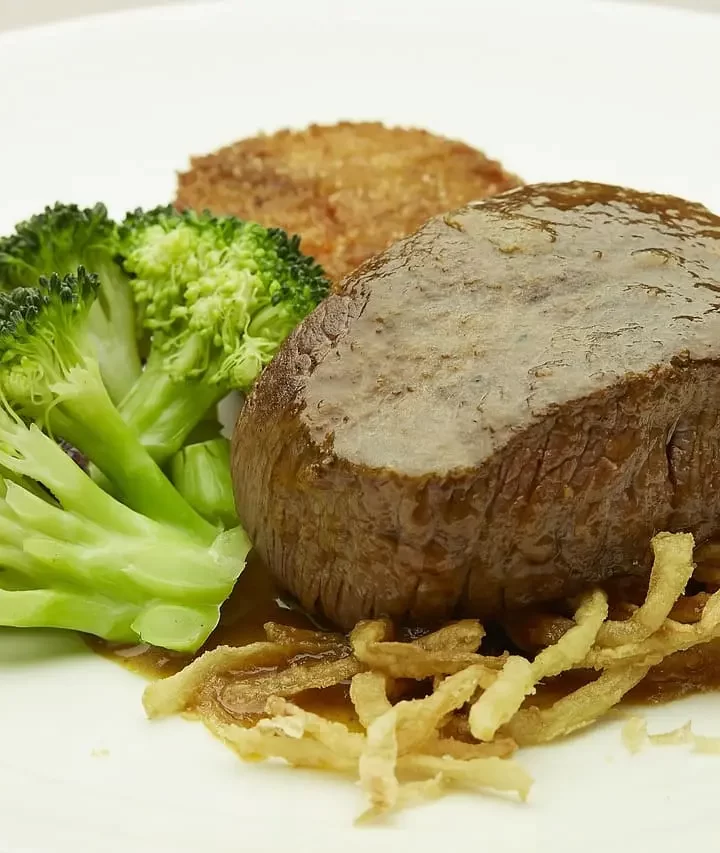Wagyu is the premium beef of Japan, where cattle are bred to have fatty marbled meat with a distinctive aroma and flavor. Unfortunately, that means they’re also prone to diseases and being relatively free-ranging, they can pass those genes on to future generations. The result is beef that’s far more costly than its U.S. counterparts, but also one that delivers greater flavor for your money.

In other words, it’s not cheap, but it does pay off in spades. The Japanese Wagyu industry is so stringent with its breeding requirements that top-quality cattle often have an identifying characteristic or trait called an “indiscriminate gene” (IG). These are passed down from parent to offspring and help create a uniform type of cattle across the herd—so you get the same outstanding taste from every piece of meat you buy as well as consistent tenderness and grilling results from all cuts of beef coming from the same animal.
Some examples of IG include Conformation: Broad forehead, small eyes, and small ears; broad nose; short legs; round body shape; strong hindquarters and big tail (called a “wasp waist’). Well-developed muscles: Large girth plus deep chest and wide shoulders give an impression of size; pronounced hipbones; long backside fattened by large internal organs such as liver, heart, kidney, stomach wall and intestines.
What is so special about Wagyu beef?
Wagyu beef is known for its marbled, fatty, and delicious taste. It’s also well-known for its tenderness and easy grilling results that make it a top choice for chefs. Wagyu steak is often a more expensive option, but this type of beef is worth the investment because you get much more meat per dollar spent.
Also you can find some interesting deals through online meat delivery, you can learn more by reading this The Meatery review. Wagyu cattle are free-ranging and can pass their genes on to future generations, so they’re prone to diseases and lower quality as time goes on.
Is Wagyu beef healthier than beef?
In addition to its excellent flavor, Wagyu beef is also far healthier than other types of beef. Studies have shown that the meat from these cattle has more of an omega-3 content in it than conventional beef. In addition, a study done by the University of Minnesota found that the Wagyu cattle had less fat per serving and were lower in calories as well.
The downside is that there are a lot of myths about this type of beef being healthy for you, so you want to be careful about who you trust with your health and believe in what they are saying. But generally speaking, Wagyu steak can be considered healthier than other types of beef if you’re looking at just the fat content and calorie count.
What makes a cow Wagyu?
The key to making a beef Wagyu is the breed of cattle, which must have specific characteristics. The most important is their conformation – they must be broad-foreheaded, small-eyed, and short-eared with a broad nose, round body shape and strong hindquarters.
- Growth rate: A calf typically takes 3 years to reach market weight, but a bull could take up to 6 years.
- Cattle feed: Cattle are fed high-quality grains that are finely ground for maximum digestibility. They are also given rice bran extract and fermented soybean paste for omega 3 and 6 fatty acids as well as beta carotene and Vitamin A.
How is Wagyu beef different from regular beef?
Wagyu beef is extremely tender, due to its unique meat composition. It has a higher moisture content, as well as more fat and less connective tissue than regular beef. Additionally, it has a more aromatic flavor, which means you get more flavor for your money. Wagyu beef steak is also considered one of the most expensive types of red meat in the world today.
It’s difficult to find and it can be pricey even when you do. But if you’re looking for an excellent meal that will leave your mouth watering, Wagyu is the way to go! If you’re looking for an out-of-the-ordinary experience that will wow your friends and family members at the next barbecue or dinner party, consider serving Wagyu beef instead of other types of red meat. You won’t find this type of beef on many menus in North America, but if you can track down some Wagyu Kobe beef while visiting Japan during a holiday trip, you’ll have a culinary experience worth remembering!








Leave a Reply